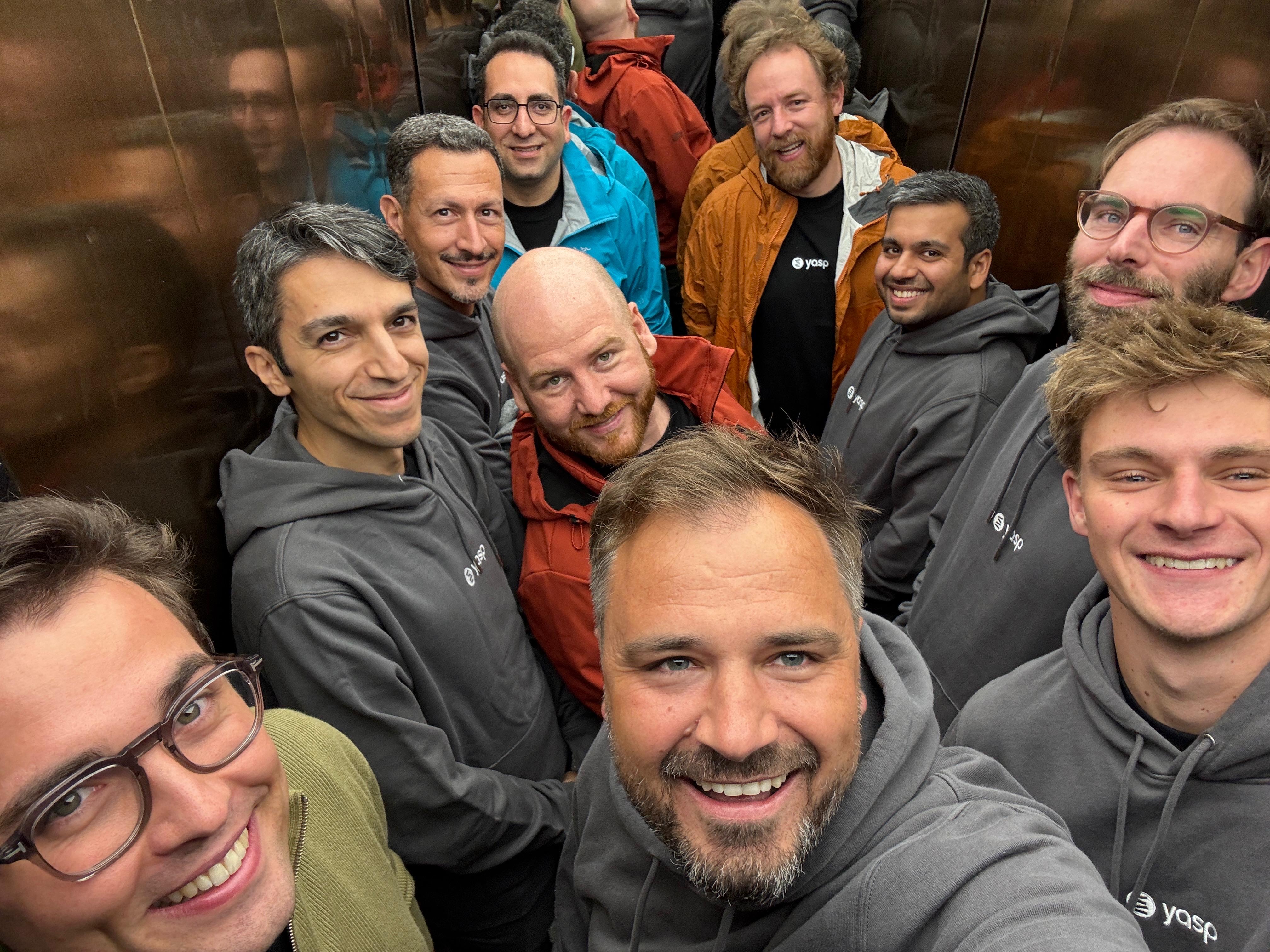There are already countless articles and presentations with advice for startups in the corona crisis. According to the motto “Everything has been said — just not by everyone yet” I will not give any further advice to startups. However, the exciting question is what long-term effects the corona crisis will have on the German startup ecosystem. For this purpose, I will compare the two past economic crises in 2000 and 2008 with the current one. Based on the experience gained, is it already possible to estimate whether the corona crisis will have exclusively negative effects, or will there also be opportunities that young technology companies can take advantage of?
Personal context
I make my observations and assessments from the perspective of an entrepreneur and investor. As an entrepreneur with my own startups and as a business angel, I experienced the crisis in 2000 and the years that followed. I was able to recognize the changed behavior of investors (BA, VC and CVC) in the years 2000 to 2004. As a VC we closed a EUR 113m Venture Fund in 2008 and invested in over 20 startups in the 4 years following. During this time it became clear how fund investors (LPs), co-investors (VCs) and entrepreneurs behaved during and after the crisis.
Thus, the following explanations are neither scientifically founded nor empirically substantiated. I expect criticism and am open to other arguments.
What actually is an economic crisis?
In economics, an economic crisis is the phase of a clearly negative development of economic growth. In addition, negative developments in other macroeconomic variables (e.g. price levels, employment, capital flows, etc.) are also referred to as an economic crisis.
Dotcom bubble (2000)
In March 2000, a speculative bubble burst in many industrialized countries, affecting, in particular, the so-called Dotcom companies. There was a perceived decline in assets and, as a result, a reluctance to buy, which led to recessionary tendencies in the countries affected. The reason for this crisis was the excessiveness on the stock market and in the valuation of tech companies.
The entire German startup ecosystem was still very new and inexperienced at the time. This was one of the main reasons for the hype in Germany and thus the bursting of the bubble being much bigger, more intense and more lasting than, for example, in the USA.
As a result, the effects were hard and intense. Planned financing rounds were canceled, startups went bankrupt by the dozen because there was no follow-up financing, valuations fell drastically, countless VCs disappeared, fund investors stopped investing in new German funds — the party was over. These were only the short-term effects.

One must not forget that the DAX was on a downward trend from 2000 to 2003. The entire economy slowed down over a period of three years. There were very few investors and capital left in the market. One speaks of the “nuclear winter” after 2000, and from 2004 onwards, one could see a noticeable recovery and reconstruction among German VCs. The first new VC funds were launched in 2004. In 2006 the HTGF became active.
Real estate bubble (2008)
The main trigger of the global financial crisis was the bursting of the real estate bubble in the USA. Supported by low interest rates, many Americans had thrown themselves into buying real estate, even those who could not actually afford it. The constantly rising prices for real estate seemed to virtually guarantee increases in value. The banks also granted loans to customers with second-class credit ratings. Real estate loans became a sought-after object of speculation. Huge receivables portfolios were traded worldwide through securitization and package formation. The insolvency of Lehman Brothers then triggered a kind of domino effect in the financial market, dragging many other financial institutions down with it. The reason for this crisis was the excessiveness of the real estate and credit market.
Overall, we can now say that the impact on our startup ecosystem was relatively moderate. Many companies reacted swiftly at that time, together with investors. Startups adjusted to the fact that it may become more difficult to obtain initial or follow-up financing. In fact, some investors were more cautious for about two years and valuations decreased somewhat. However, the impact has not been as dramatic as eight years ago. This was also due to the fact that everyone involved was more experienced and that the crisis was not “home-made”. Everyone felt the economic impact. For young startups, however, they were not as serious as for large companies or the medium-sized sector.

In retrospect, the crisis in 2008 and the following years opened up many opportunities for young technology startups, as established companies were hit much harder and had to react accordingly on the cost side.
Examples of startups that were founded shortly before or during the crisis and became successful because of and/or despite the crisis include AirBnB, Uber, Zalando, Babbel, Soundcloud, GetYourGuide, Smava, MisterSpex, Signavio, MyTaxi (now FreeNow), Fyber, ResearchGate.
It is certainly interesting for entrepreneurs and investors to look for parallels to the current situation and, if possible, to use the insights, patterns, and lessons learned from the period 2008 to 2010 for our actions today.
Corona Pandemic (2020)
Because of the spread of COVID-19, stock market crashes have already occurred in several countries. Besides the drop in oil prices, the main reasons for the beginning economic crisis were the drop in sales due to contact bans, exit and travel restrictions, as well as declining purchasing power due to rising unemployment in industries that were particularly affected. In comparison to previous crises, the reason for the Corona crisis is not excessiveness or economic system errors, but an unprecedented exogenous factor. We are not yet able to estimate the extent and duration of the crisis.
All of us have already registered the short-term effects. Purchasing power (depending on the various sectors) is declining. As a partner of Capnamic Ventures, it was interesting to observe that the companies, together with their investors, learned from past crises and reacted immediately. Companies have carried out stress tests, reduced costs, and thus extended their cash reach. Investors became generally more cautious and somewhat more restrained. They have focused on securing and supporting their own portfolio companies.
What is exciting is the long-term view of this crisis. What risks and, in particular, what opportunities are concealed? No one can say for sure, yet, how the Corona crisis will affect our society and economy in the long term.
However, I believe that this crisis will also bring opportunities for startups and investors and that the German startup ecosystem will emerge from the crisis stronger than before compared to other industries.
At present, it is not clear how long the recession will last and how quickly the economy will recover. It may be short-lived, but it could well turn into a recession that is far more severe than the global financial crisis in 2008. Such a recession would certainly have a huge impact on our startup ecosystem. Companies will fail and investors will resign. But — as in 2008 — these will be times when successful and sustainable companies will be built.
Industries
The effects of the corona crisis are already being felt differently depending on the industry. While startups in travel and mobility sectors (e.g. Flixbus, GetYourGuide, etc.) are suffering from a sharp drop in turnover, companies in the enterprise software sector have so far only felt slower growth. There are areas such as collaboration tools (e.g. Slack, Zoom, Staffbase, etc.) or e-health that could emerge as winners from this crisis.
Business models
If we compare companies (e.g. Netflix vs. MediaMarkt) and business models (e.g. software subscription vs. sale of production equipment), we see that digital business models are much more resilient in this crisis than the rest of the economy. Recurring sources of income based on the delivery of virtual products and services are not only more scalable in “normal” times, but to a certain extent also more robust in crises.
Innovation in Germany
The changes in cooperation that are now being pushed forward will fuel digitization in Germany and will be permanent. Home office, e-government, e-health, etc. will become normal and indispensable. The necessary innovation and technology will be developed and supplied by young technology companies. They will emerge as long-term winners in the coming years.
Competition and Fundraising
There are also already effects on the financing side and these will continue for some time to come. Capital is and will no longer be so easily accessible for many startups. Financing rounds are becoming smaller and valuations are being adjusted downwards. The global market has always sifted and filtered — this is now being intensified. However, this will also result in fewer competitors. Technology startups that are able to complete financing rounds in this situation will have a much greater advantage than before the crisis.
Most startups have already prepared themselves for the storm and will survive the short-term effects. Declining demand, the resulting drop in sales or growth and the challenges in financing will be hard, but hopefully short-lived. One thing is certain and 2008 has shown this: the surviving companies will be stronger, face less competition, grow faster and be more valuable at the end of the recession.
Outlook
The German startup ecosystem will not disappear into oblivion as it did after the Dotcom bubble. We (startup entrepreneurs and investors) will emerge from the crisis stronger and faster than other sectors of the economy. I hope that young technology companies will become even more relevant for the economy as a whole after the crisis because they stand for innovation and change and are more adaptable than other sectors of the economy.
The article was published in a German version on Gründerszene (Link)





.png)

.jpg)


.avif)


























.avif)


.avif)




















.avif)
.avif)

